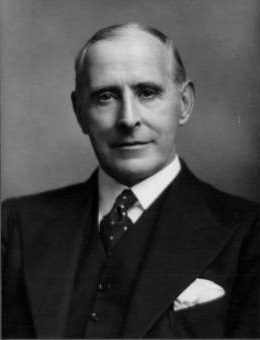Related Research Articles
The National Party of Scotland (NPS) was a centre-left political party in Scotland which was one of the predecessors of the current Scottish National Party (SNP). The NPS was the first Scottish nationalist political party, and the first which campaigned for Scottish self-determination.
Peebles and Selkirk was a county constituency of the House of Commons of the Parliament of the United Kingdom (Westminster) from 1868 to 1918. It elected one Member of Parliament (MP) by the first past the post voting system.
Thomas David King Murray, Lord Birnam,, known as Lord Murray between 1938 and 1941 and Sir David King Murray between 1941 and 1945, was a Scottish advocate and judge who served for two years as Unionist Member of Parliament (MP).
Sir Thomas Henderson was a Scottish Liberal Party politician and businessman.

Sir Alfred Hamilton Grant, 12th Baronet, known as Hamilton Grant, and from 1918 as Sir Hamilton Grant, was a British diplomat who served primarily in India. He was also briefly a Liberal Party politician.

Sir Robert John Collie was a Scottish medical doctor and public servant who also served as National Liberal Party MP for Glasgow Partick from 1922 to 1923.
Sir George Aitken Clark Hutchison was an advocate mainly remembered in his role as a politician as a Scottish Unionist who served as the Member of Parliament for Midlothian and Peebles Northern from 1922 to 1923, and from 1924 until his death.
The 1929 Midlothian and Peebles Northern by-election was a parliamentary by-election held in Scotland on 29 January 1929 to elect a new Member of Parliament (MP) for the House of Commons constituency of Midlothian and Peebles Northern.
The Midlothian by-election was a Parliamentary by-election held on 10 September 1912. The constituency returned one Member of Parliament (MP) to the House of Commons of the United Kingdom, elected by the first past the post voting system.
A sheriffdom is a judicial district of Scotland. Originally identical to the Shires of Scotland, from the eighteenth century many counties were grouped to form "sheriffdoms".
The 1926 North Cumberland by-election was held on 17 September 1926. The by-election was held due to the succession to the peerage of the incumbent Conservative MP, Donald Howard. It was won by the Conservative candidate Fergus Graham.
John Stuart Mowat, was a Scottish Sheriff and Liberal Party politician.
John Gray Wilson QC was a Scottish advocate, writer and Liberal Party politician.
Major John Gordon Jameson (1878–1955) was Unionist Party MP for Edinburgh West.

James Rankin Rutherford was a Scottish Liberal Party politician. He was the Provost of Kirkintilloch 1931–33 and Convener of the County Council 1939–1945.

Sir Hubert Douglas Henderson, was a British economist and Liberal Party politician.
Thomas Pringle McDonald QC, was a Scottish lawyer and Liberal Party politician. He was Sheriff of Aberdeen, Kincardine and Banff.
Robert Ian Aonas MacInnes QC, was Sheriff of Lanarkshire and a Scottish Liberal Party and Scottish Labour Party politician.
Captain Charles de Bois Murray, was a Scottish judge, politician and writer. He served as Sheriff in Renfrewshire and Berwickshire, and as a Liberal Party candidate.
References
- 1 2 "New Sheriff-Substitute. Appointment of Mr William Mitchell K.C." The Glasgow Herald . 16 October 1930. p. 11. Retrieved 12 March 2016.
- 1 2 ‘MITCHELL, William’, Who Was Who, A & C Black, an imprint of Bloomsbury Publishing plc, 1920–2016; online edn, Oxford University Press, 2014; online edn, April 2014 accessed 17 Feb 2016
- ↑ University of Edinburgh Journal, 1937
- ↑ "Parliamentary Election" . Aberdeen Journal. 9 November 1922. Retrieved 17 February 2016– via British Newspaper Archive.
- 1 2 "Edinburgh North. Triangular Fight. Industrial constituency of the city". The Glasgow Herald. 14 May 1929. p. 8. Retrieved 13 March 2016.
- ↑ "Mr Lloyd George. Today's Edinburgh speech". The Glasgow Herald. 3 May 1929. p. 13. Retrieved 13 March 2016.
- 1 2 British Parliamentary Election Results 1918-1949, FWS Craig
- ↑ The Times, 17 November 1922
- ↑ The Times, 8 December 1923
- ↑ Oliver & Boyd's Edinburgh Almanac, 1927